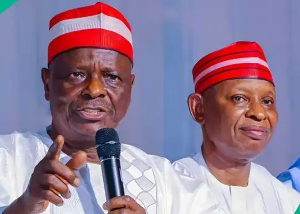Liquefied Petroleum Gas marketers have set a target to raise Nigeria’s annual LPG supply to six million metric tonnes in the coming years as part of efforts to deepen the use of cleaner energy across the country.
The outgoing President of the Nigerian Association of Liquefied Petroleum Gas Marketers, Oladapo Olatunbosun, disclosed this on Tuesday at the association’s 38th Annual General Meeting in Abuja, where he reviewed the growth of the sector and outlined future goals for the industry.
Olatunbosun said the country’s LPG consumption had grown from about 900,000 metric tonnes four years ago to over two million metric tonnes in 2024, attributing the progress to increased investment, collaboration with government agencies, and rising public acceptance of gas as a domestic energy source.
“About four years ago, national consumption of LPG was between 900,000 metric tonnes and one million metric tonnes.
“Today, by the grace of God, it has risen to two million metric tonnes, and from the look of things, by the first quarter of next year, LPG consumption will hit three million metric tonnes per annum,” he said.
The NALPGAM president added that with sustained policy support and private sector participation, the association’s goal of hitting six million metric tonnes per annum was achievable.
“Through our collaboration with the Federal Government under the Decade of Gas initiative, we have been able to deepen the future of LPG in Nigeria.
“By the grace of God, we hope to increase supply to six million metric tonnes per annum, which I believe is achievable.
“By that, we will be able to rub shoulders with other countries like Morocco and Egypt, which currently lead LPG supply in Africa,” Olatunbosun said.
Nigeria’s LPG industry has witnessed steady growth since the launch of the National Gas Expansion Programme and the Decade of Gas Initiative in 2021, aimed at driving industrialisation and cleaner energy adoption.
With a population exceeding 200 million and abundant natural gas reserves of over 200 trillion cubic feet, Nigeria is among Africa’s largest gas producers but still struggles with low domestic LPG penetration, particularly in rural areas.
According to the Nigerian Midstream and Downstream Petroleum Regulatory Authority, Nigeria consumes about 1.9 to 2 million metric tonnes of LPG annually, far below its potential market size of 5 to 6 million tonnes.
Despite the progress, Olatunbosun noted that the rising cost of LPG and uneven supply remain key concerns.
He expressed optimism that the lingering complaints over the high cost of cooking gas would soon be a thing of the past, citing ongoing efforts to boost domestic supply.
According to him, the expected entry of Seplat Energy’s gas into the market, combined with increased production from the Dangote Refinery and other ongoing investments in gas infrastructure, would ease supply pressures and stabilise prices nationwide.
He also urged the incoming leadership to prioritise affordability and expand access to rural areas where gas adoption remains low.
“Affordability is critical. Every Nigerian household deserves access to LPG. We must keep pressing for mechanisms and investments that guarantee steady supply and price stability,” he said.
He lamented that many rural areas are yet to benefit from the gas revolution due to inadequate infrastructure and distribution challenges.
“People in rural communities face poor access, while city dwellers battle high prices. We must find a balance and ensure gas becomes a truly national fuel,” he added.
The NALPGAM president acknowledged recent supply disruptions linked to plant maintenance and refinery logistics but expressed optimism that stability was returning with the ramp-up of production at the Dangote Refinery and other local facilities.
“Because of maintenance issues and temporary supply distortions, prices rose recently. But normalcy is returning, and as local production increases, prices will come down,” he assured.
He maintained that the country’s population growth and industrial needs would continue to drive gas demand, underscoring the need for increased domestic processing capacity and infrastructure investments to reduce reliance on imports.
Olatunbosun also called on operators to embrace technological innovations to improve safety, curb product theft, and enhance plant monitoring.
“We must confront leakage and theft by adopting artificial intelligence and digital monitoring tools. Innovation is the future of our business,” he said.
He encouraged young Nigerians to develop technological solutions that can improve LPG handling, logistics, and safety standards across the value chain.
Reflecting on his four-year tenure as president, Olatunbosun expressed gratitude to NALPGAM members for their support and unity, describing his tenure as a period of transformation and resilience.
“It has been an honour to serve this great association. I am proud of what we achieved together. But this progress must continue under the next administration,” he said.
He charged the incoming executives to consolidate the gains recorded, pursue new investment opportunities, and sustain advocacy for an enabling business environment.
“Soldier go, soldier come, barrack remain,” he said metaphorically. “We only have one association. The greatness of NALPGAM depends on our collective support and vision.”
The highlight of the 38th Annual General Meeting is the election of new executives who will steer the affairs of the Nigerian Association of Liquefied Petroleum Gas Marketers for the next four years.
Business News of Wednesday, 29 October 2025
Source: www.punchng.com













